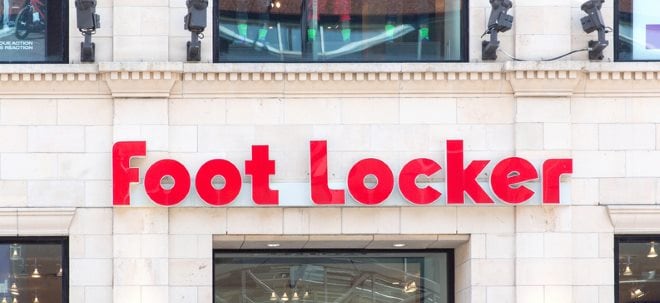Navigating Stigma, Uncertainty, and Optics: 2025 Neurodiversity at Work Survey Reveals Gaps in Support for Neurodivergent Employees
82% of All U.S. Adults Think Employers Need Better Education on Supporting Neurodivergent Employees
NEW YORK, May 15, 2025 /PRNewswire/ -- Understood.org, a leading nonprofit supporting the 70 million people in the U.S. who have learning and thinking differences, such as ADHD and dyslexia, today released findings from its annual "Neurodiversity at Work Survey" conducted online by The Harris Poll. The results revealed a widening gap between awareness and action. While conversations about neurodiversity in the workplace are more frequent, stigma remains a significant barrier. There is an urgent need for improved employer education and more support for neurodivergent employees.
Research from Understood.org highlights the challenges and opportunities that neurodivergent people face at work.Awareness Is Growing, Yet Stigma Remains
The good news is nearly 2 in 3 employed adults (64%) agree that people talk more openly about their neurodivergence at work now than in the past, including about 3 in 4 adults who identify as neurodivergent (74%). Additionally, more people are self-advocating, with 30% of all U.S. adults having ever asked an employer for workplace accommodation, up from 25% in 2024. For adults who identify as neurodivergent, the number of people requesting accommodations jumps to 51% in 2025.
At the same time, significant barriers remain. Most U.S. adults (70%) agree that there is stigma around asking for a workplace accommodation, up from 60% in 2024. And 77% of all adults agree that neurodivergent employees feel pressure to "mask" or conform to neurotypical behaviors at work due to this stigma. Among neurodivergent individuals, 82% agree.
"For people with ADHD and other learning and thinking differences, 'masking' in the workplace can be emotionally exhausting and often prevents them from seeking the support they need," said Deb Wilson, chief people and culture officer at Understood.org. "It's essential for everyone to recognize the barriers that neurodivergent employees face, so we can continue to shape workplaces for difference and help people thrive, not just get by."
Employer Education Should Be a Greater Priority
When accommodations are provided, they make a difference. "Our survey showed that among people who requested workplace accommodations, more than half — fifty-six percent — said they got an accommodation that improved their workplace experience," said Nathan Friedman, co-president and chief marketing officer at Understood.org.
Despite increased attention and awareness of neurodiversity, many say employers' efforts fall short in creating inclusive work environments. Among employed adults who identify as neurodivergent, nearly 2 in 3 (64%) say they worry that disclosing their condition would have a negative impact on them in the workplace. More than half of all neurodivergent adults (53%) agree that neurodiversity programs are mostly for optics. Nearly 7 in 10 employed adults who identify as neurodivergent (68%) say they have no idea what accommodations they are entitled to, and 51% don't know who to talk to in their workplace about requesting them.
A New Era of Workplace Uncertainty
Amid large-scale cultural and economic shifts, workplaces are in a new era of uncertainty. According to the survey, about 2 in 3 employed adults who identify as neurodivergent (67%) say that they are afraid to leave their job due to fear of not finding another, compared to just over half of neurotypical respondents (51%). And, nearly two-thirds of all U.S. adults (64%) agree that they expect it to become more difficult for people to get the workplace accommodations they need, given current DEI rollbacks.
"Currently, inclusivity and accessibility are being questioned, it's more important than ever to ensure that neurodivergent employees feel supported and empowered to succeed," added Friedman. "Time and again, we've seen that when workplaces are intentionally designed with neurodivergent needs in mind, they unlock stronger collaboration, greater productivity, and more effective problem-solving for everyone."
For more information and resources, visit u.org/work.
Survey Methodology
This survey was conducted online within the United States by The Harris Poll on behalf of Understood.org from April 10–14, 2025, among 2,079 U.S. adults ages 18+, of whom 1,432 are employed, 659 identify as being neurodivergent, and 539 are employed and neurodivergent. The sampling precision of Harris online polls is measured by using a Bayesian credible interval. For this study, the full sample data is accurate to within +/- 2.5 percentage points using a 95% confidence level.
About Understood
Understood is a nonprofit focused on shaping the world for difference. We raise awareness of the challenges, skills, and strengths of people who learn and think differently. Our resources help people navigate challenges, gain confidence, and find support and community so they can thrive. Together, we can build a world where everyone can reach their full potential. Understood is a 501(c)(3) organization headquartered in New York. For more information, to donate, or to partner, visit u.org/media and follow us @UnderstoodOrg.
![]() View original content to download multimedia:https://www.prnewswire.com/news-releases/navigating-stigma-uncertainty-and-optics-2025-neurodiversity-at-work-survey-reveals-gaps-in-support-for-neurodivergent-employees-302456219.html
View original content to download multimedia:https://www.prnewswire.com/news-releases/navigating-stigma-uncertainty-and-optics-2025-neurodiversity-at-work-survey-reveals-gaps-in-support-for-neurodivergent-employees-302456219.html
SOURCE Understood for All, Inc.



